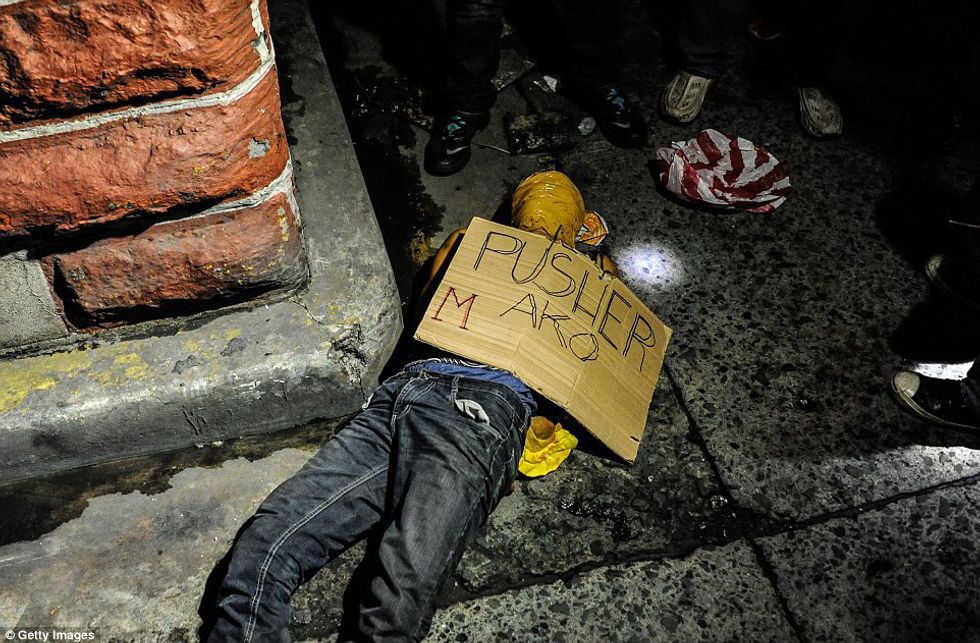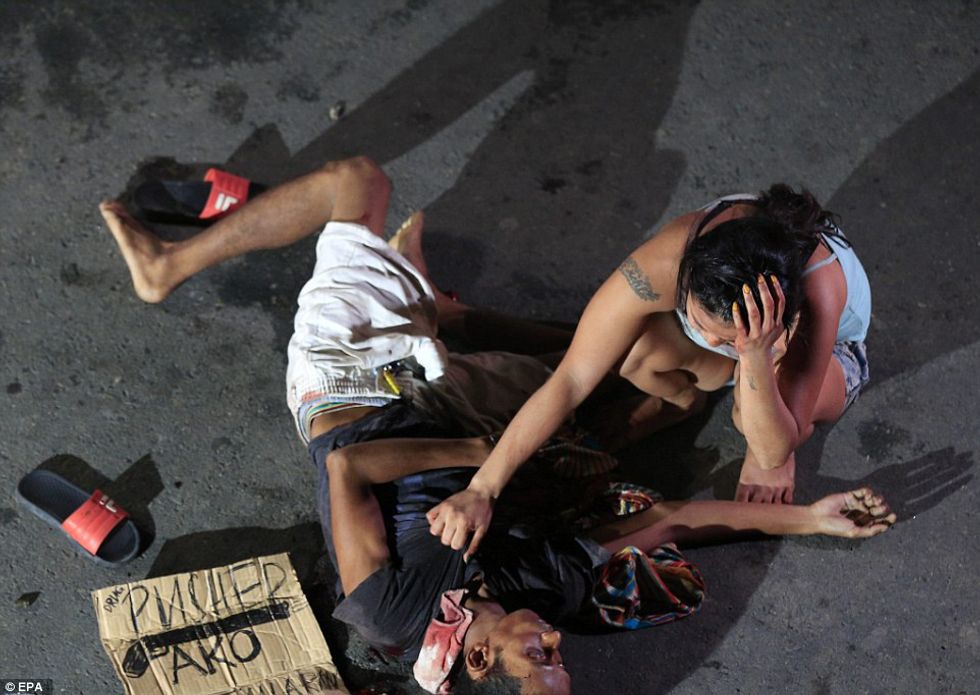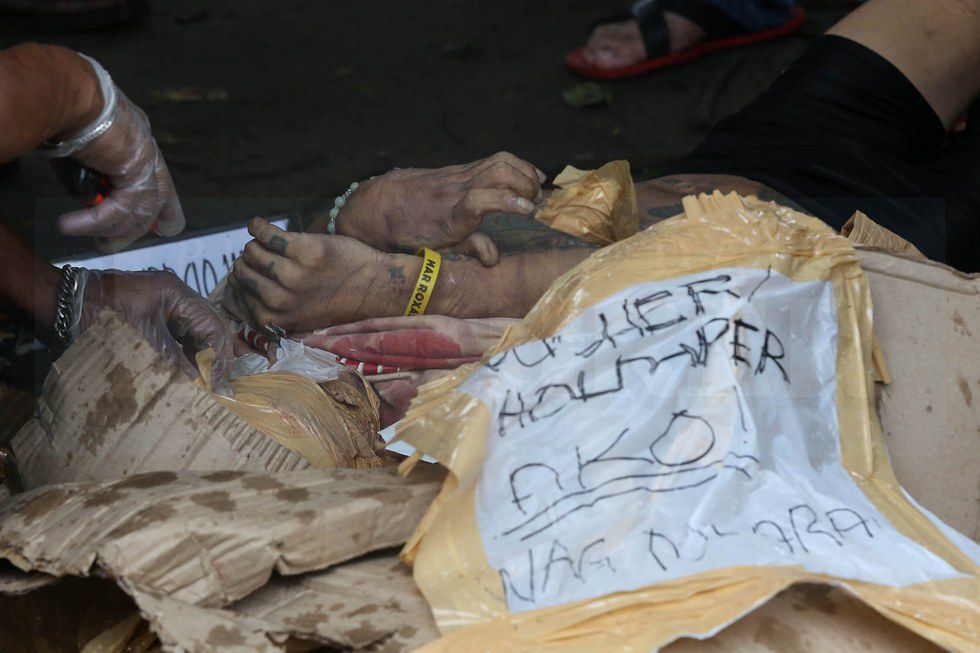It’s been a month since Rodrigo Duterte was inaugurated as president of the Philippines — one of the most controversial presidential candidates anywhere this year. He’s been referred to in international media as the “Donald Trump” of the Philippines (or, according to John Oliver, the "Trump of the East") for his uncensored manner of speech and his “Did he really just say that?” moments, but he’s really much more than that. He is brutal, almost dangerous, and his time in office has already been marked by an alarming amount of bloodshed.
Between July 1 and July 24, 293 suspected drug dealers and users have been killed — shot dead in the streets, shot in their own homes during police raids, shot in front of their own family members. In the Duterte’s current campaign against drugs, anyone can be a drug dealer or drug user, and some of the victims might have been neither. The full kill list, regularly updated, can be found here.
This is no mere case of obscure political upheaval of some faraway, foreign country. This is an issue of human rights.
He warned us.
"Forget the laws on human rights. If I make it to the presidential palace, I will do just what I did as mayor. You drug pushers, hold-up men and do-nothings, you better go out. Because I'd kill you.” — Rodrigo Duterte, May 2016
As mayor of Davao City, located in the southern province of Mindanao, Duterte had already gained a tough-on-crime reputation, though where the controversy begins is in his methods of bringing down crime rates. Davao City had been the center of extrajudicial killings as armed vigilante groups, or “death squads”, would raid the town in search of criminals, armed with guns and black-and-white definitions of “crime” and “punishment”. As mayor, Duterte did nothing to curb these unjust killings.
“Dead bodies were piling up in Davao City during that time, consisting mainly of addicts, drug-pushers and thieves and young people with police records for petty crimes. A number of them were minors.” — 2012 Report by the Commission of Human Rights in the Philippines
During his presidential campaign, Duterte made what seemed to be outlandish promises, such as vowing to kill 100,000 criminals within the first six months of his presidency.
Despite the Davao City controversies, it was this all-or-nothing stance towards crime that appealed to voters, Filipino citizens who believed that in the complete eradication of crime lay the answer to national prosperity. Though whether or not these same voters would agree that the suspension of human rights and subversion of a democratic criminal justice system are a necessary means to this end remains to be seen.
"Cardboard justice"
is the term used by protesters to describe what “due process” looks like after a month of Duterte's war on drugs. After being simply suspected (not convicted) of dealing or using drugs, anywhere at any time, people have been found dead in the street with cardboard signs labeling them as “drug pushers”, a chilling message and warning to passersby.
No arrest, no trial, no due process. And no rehabilitation for those who may need it.
Duterte has been called the “Donald Trump of the Philippines.”
Here's why I don't agree. As someone who abhors Trump’s ignorant, bigoted rhetoric and the hatred it inspires among his supporters, I still firmly believe that he is, essentially, harmless. Donald Trump is no more than a sensationalized talk show, a well-built caricature perfectly curated and fed to us by the American media. We all ate it up, yes, but at the end of the day Trump not just looks, but is, paper-thin. Should he be elected, I have faith in the power of checks and balances in our government, and I have faith in our own power to vote into office people who will do everything they can to make sure that Trump’s words do not become actions.
Rodrigo Duterte is a politician of a different strain, and his supporters are not to be dismissed. Unlike those of Trump, they are mostly intelligent, well-informed, well-intentioned. They are not bigots or racists. They want what is best for their country, and we cannot argue that high crime rates are not a bad thing. But after a month of this war on drugs, the absurdity of Duterte’s previous statements is now becoming a horrifying reality; the country, a state of terror, violence, and fear. If anyone could be labeled a possible drug dealer (as anti-Duterte activists say, "Lahat tayo ang posibleng drug pusher"), what's to stop a full-blown witch hunt?
Further, is this a possibility for us, a month under Trump? Could our “vigilante” killers be racists and hate groups, could Trump’s outlandish promises today be the future executive orders for them to carry out? Could we, too, become citizens oppressed by violence and fear under the militaristic arm of law enforcement — for minority groups, isn’t this already a reality?
Could Trump possibly be the Duterte of the United States?
With my lack of belief in the cartoon character that is Donald Trump, I’ll concede that this is a terrifying possibility. I want to emphasize my conviction that this is a concern about democracy as well as human rights, and that this concern transcends national borders, geographical location, and politics.
When is it acceptable to abandon democratic values, including the right to due process of the law? When is it acceptable for the government branch of law enforcement to run unchecked, unbalanced? When did criminals and drug addicts suddenly cease to become human? I leave these questions for the citizens of any democracy to answer, and, in doing so, perhaps rethink what truly constitutes the greatness of a nation.


























